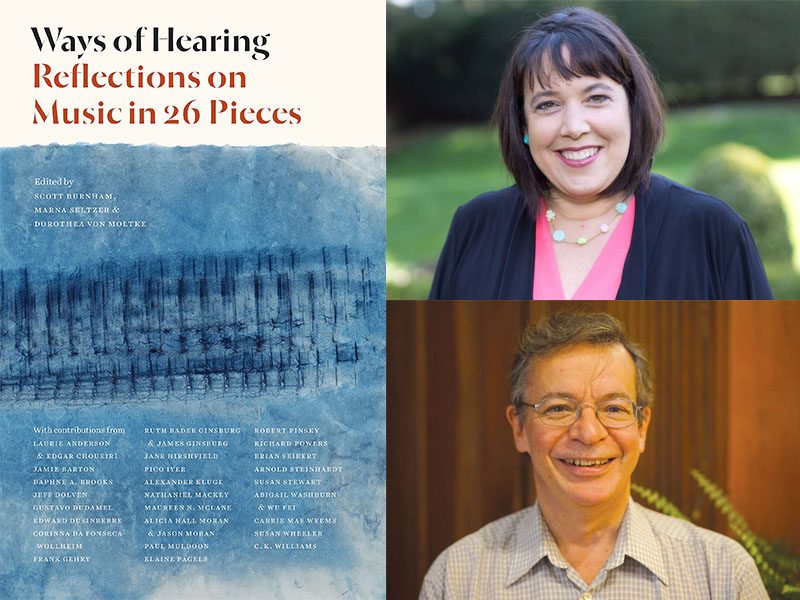Scott Burnham is Distinguished Professor of Music at the Graduate Center, City University of New York, and Scheide Professor of Music History Emeritus at Princeton University. Marna Selzer is Director of Princeton University Concerts and Department of Music Concert Office. Their book “Ways of Hearing,” edited along with co-owner of Labyrinth Books Dorothea von Moltke, was published on September 28, 2021.
How did you get the idea for this project?
The original inspiration for this book was the 125th anniversary celebration of Princeton University Concerts. We wanted to do something special to mark the occasion. Our first idea was to ask musicians and musical thinkers to write about their favorite pieces of concert music. And this is where having Dorothea von Moltke, a professional bookseller, as a key collaborator really paid off. With her input, it soon became clear that we had an opportunity to offer a much more broadly impactful book. And as we then began to reach out to a much greater variety of influential and diverse contributors, we realized that Ways of Hearing would not only appeal to a larger audience but would also add something uniquely meaningful to the body of words written about music.
How has your project developed or changed throughout the research and writing process?
The project as it went along became consistently more ambitious. As a project stemming from Princeton University, we started out focusing mainly on contributors associated with Princeton University, and also Princeton University Concerts. But when we broadened our search to include well-known figures in the world at large, we discovered that our prompt (“choose a particular piece or aspect of music with which to engage on the page”) appealed even to some of the busiest people imaginable, such as Richard Powers and Ruth Bader Ginsburg. As we progressed, the balance of voices and of disciplines became increasingly crucial, and we made sure that Ways of Hearing would represent a wide range of backgrounds, ethnicities, disciplines, and kinds of music.
What questions for future investigation has the project sparked?
The reaction of our writers was so positive that we hope to be able to do a second volume at some point, maybe to celebrate Princeton University Concerts’ 130th anniversary! We trust that the book will spark an enhanced curiosity about music, as well as the urge to encounter an ever greater variety of music. To this end, we encourage readers to access the companion playlist on Spotify and listen to the music as they read along. This is where the magic really comes to life.
Why should people read this book?
We all have experienced the transformative power of music in our own personal ways but rarely does such a remarkable group of people attempt to put something so magical into words. In this book, you have 26 different attempts to capture a singular art form that, in some ways, exists because words are not enough. Why else would a group of people want to gather in a dark space to sit silently and—quite literally—feel the air vibrate? Through personal anecdotes, a dizzying array of insights, and moments of fierce intellectual rigor, one has a front row seat to the thoughts of some of the most creative spirits on the planet. There is indeed something for everyone here, and we like to think this is a book that readers will browse avidly and then come back to over time. In the end, Ways of Hearing not only helps us understand and feel more about particular pieces of music, it also demonstrates music’s power to shape and express the human experience.
Learn more about other publications by Princeton University faculty in the humanities by exploring our Faculty Bookshelf.
















